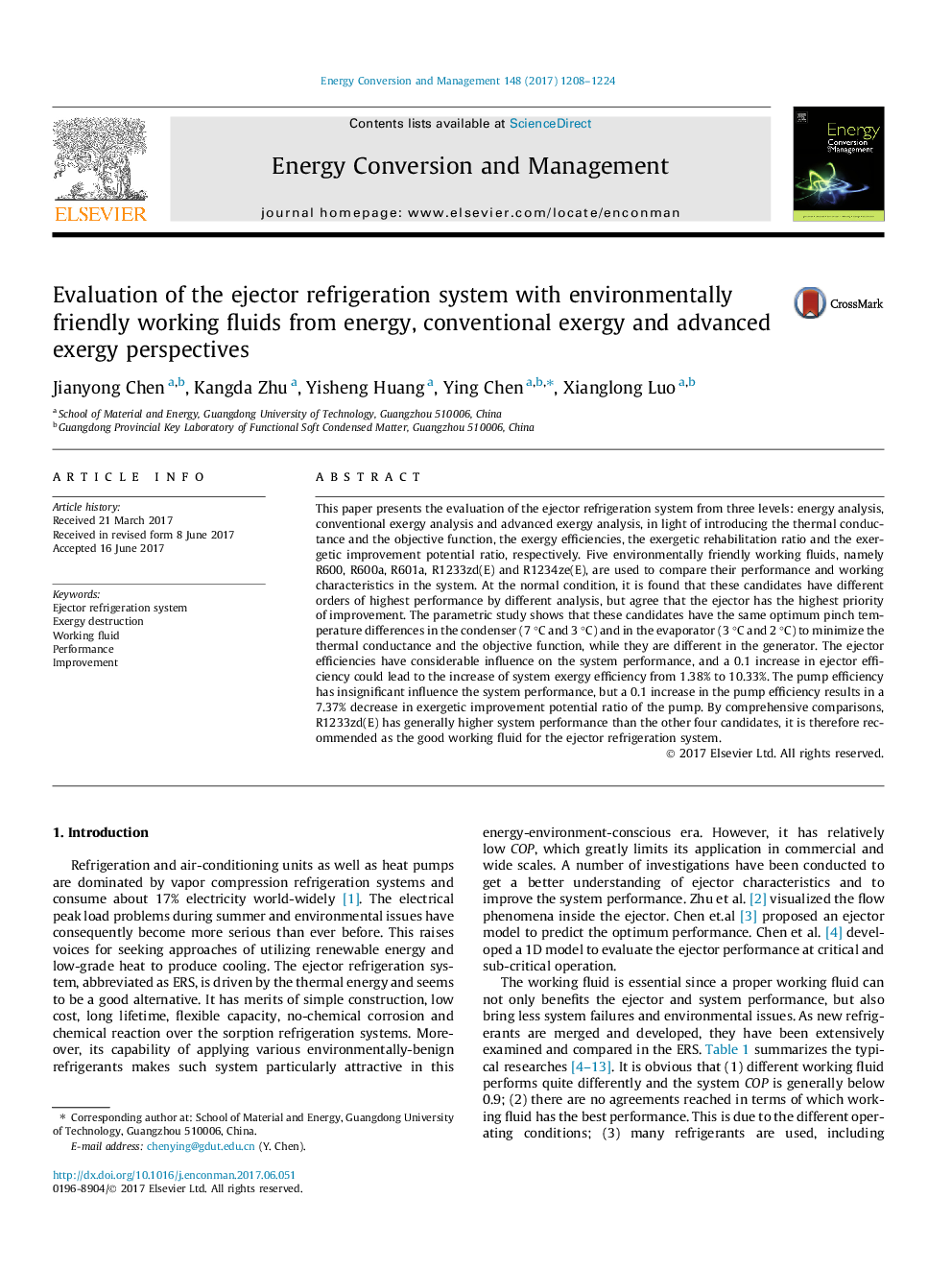| Article ID | Journal | Published Year | Pages | File Type |
|---|---|---|---|---|
| 5012602 | Energy Conversion and Management | 2017 | 17 Pages |
Abstract
This paper presents the evaluation of the ejector refrigeration system from three levels: energy analysis, conventional exergy analysis and advanced exergy analysis, in light of introducing the thermal conductance and the objective function, the exergy efficiencies, the exergetic rehabilitation ratio and the exergetic improvement potential ratio, respectively. Five environmentally friendly working fluids, namely R600, R600a, R601a, R1233zd(E) and R1234ze(E), are used to compare their performance and working characteristics in the system. At the normal condition, it is found that these candidates have different orders of highest performance by different analysis, but agree that the ejector has the highest priority of improvement. The parametric study shows that these candidates have the same optimum pinch temperature differences in the condenser (7 °C and 3 °C) and in the evaporator (3 °C and 2 °C) to minimize the thermal conductance and the objective function, while they are different in the generator. The ejector efficiencies have considerable influence on the system performance, and a 0.1 increase in ejector efficiency could lead to the increase of system exergy efficiency from 1.38% to 10.33%. The pump efficiency has insignificant influence the system performance, but a 0.1 increase in the pump efficiency results in a 7.37% decrease in exergetic improvement potential ratio of the pump. By comprehensive comparisons, R1233zd(E) has generally higher system performance than the other four candidates, it is therefore recommended as the good working fluid for the ejector refrigeration system.
Related Topics
Physical Sciences and Engineering
Energy
Energy (General)
Authors
Jianyong Chen, Kangda Zhu, Yisheng Huang, Ying Chen, Xianglong Luo,
